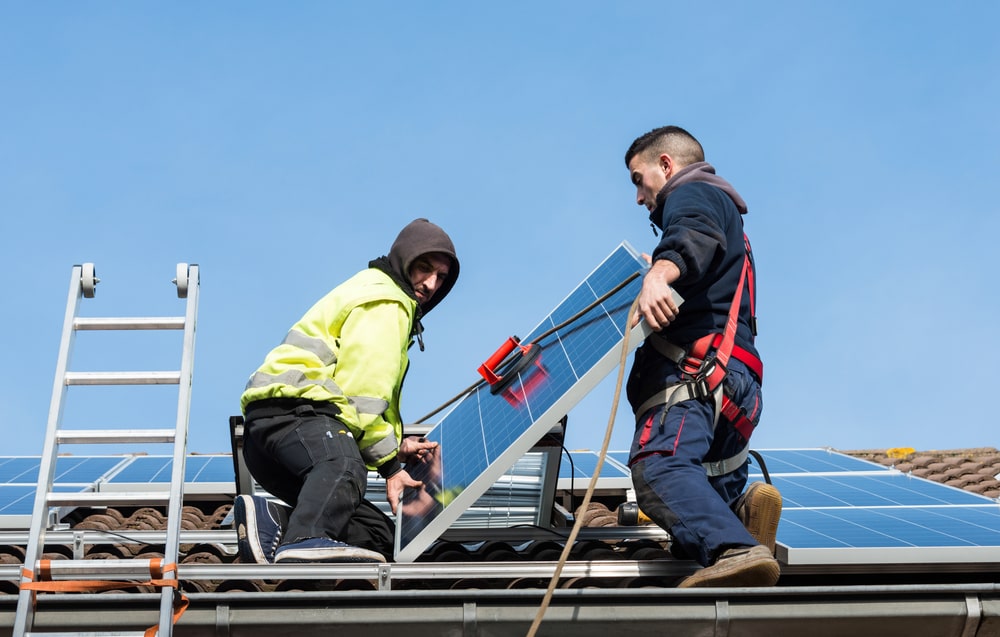 As California leads the charge toward a clean energy future, businesses across the state are facing a critical question: Is now the right time to go solar? The answer depends on more than just enthusiasm—it hinges on strategic insight. That’s where a solar feasibility study becomes your business’s most valuable planning tool for 2025.
As California leads the charge toward a clean energy future, businesses across the state are facing a critical question: Is now the right time to go solar? The answer depends on more than just enthusiasm—it hinges on strategic insight. That’s where a solar feasibility study becomes your business’s most valuable planning tool for 2025.
What Is a Solar Feasibility Study?
A solar feasibility study is a comprehensive assessment designed to determine whether solar energy is a viable and financially sound solution for your business. It goes far beyond a basic estimate or sales pitch. Instead, it provides you with real data, detailed financial forecasts, and site-specific insights so you can make informed decisions before investing in a solar installation.
A proper feasibility study evaluates:
-
Your facility’s solar potential (roof orientation, shading, available space)
-
Current and projected energy usage
-
Installation costs and available incentives
-
Expected ROI, payback period, and cash flow projections
-
Permitting and interconnection feasibility
-
Recommendations for ownership vs. leasing or using a power purchase agreement (PPA)
In short, it’s the roadmap that helps your business avoid costly surprises and capitalize on the right solar strategy.
Why 2025 Is a Pivotal Year for California Businesses
With energy costs climbing and climate mandates tightening, California’s commercial sector is under more pressure—and more opportunity—than ever. Here’s why 2025 is a tipping point for going solar:
1. Rising Utility Costs
Electricity rates from investor-owned utilities like PG&E, SCE, and SDG&E are on the rise. A solar feasibility study helps you model savings scenarios and shield your business from unpredictable rate hikes.
2. NEM 3.0 and Changing Solar Rules
The implementation of Net Energy Metering (NEM) 3.0 has changed how solar energy is credited in California. Businesses need expert analysis to understand how the new structure impacts financial returns—and how battery storage might improve value.
3. Tax Incentives Are Still Available (But Not Forever)
The Investment Tax Credit (ITC) still offers a 30% federal tax credit on solar projects through 2032—but with declining benefits for delay. Additional incentives through California’s Self-Generation Incentive Program (SGIP) and bonus depreciation through MACRS make 2025 an ideal window for planning.
4. ESG and Green Branding
As environmental, social, and governance (ESG) expectations grow, sustainability is no longer optional for businesses—it’s a competitive advantage. Solar aligns with green branding, helps meet reporting standards, and enhances customer perception.
What a Feasibility Study Can Reveal
Think of a solar feasibility study as a risk-reducing and opportunity-maximizing tool. It might show:
-
That your location qualifies for state/local rebates.
-
You’ll recover costs in less than 5 years with long-term savings exceeding $500,000.
-
Your roof may need retrofitting—or be perfect for a carport or ground mount.
-
A solar + battery system could ensure resilience during blackouts, saving revenue.
This information empowers you to act confidently—or delay strategically—based on evidence.
Who Should Get a Solar Feasibility Study?
Any California business that:
-
Spends $1,500/month or more on electricity
-
Owns or leases space with consistent sunlight exposure
-
Is planning to upgrade or build new facilities
-
Wants to improve its sustainability profile or lock in long-term cost savings
Industries we regularly consult include manufacturing, warehousing, agriculture, real estate development, education, and healthcare.
How to Get Started
At Energy Independence Professionals, we make it simple to get the answers your business needs. Our team of consultants, engineers, and financial modelers will walk you through the entire feasibility process.
- No obligation
- No guesswork
- Actionable insights in one report
A Smarter Way to Go Solar in 2025
Going solar in California has never been more promising—or more complex. Between evolving utility policies, new incentive deadlines, and economic pressures, making the right move requires more than optimism. It demands data, planning, and strategy.
A solar feasibility study is your first, smartest step. It clarifies your potential, minimizes your risk, and sets your business on the path to energy independence with confidence.
Ready to future-proof your business?
Request your free feasibility assessment now.
